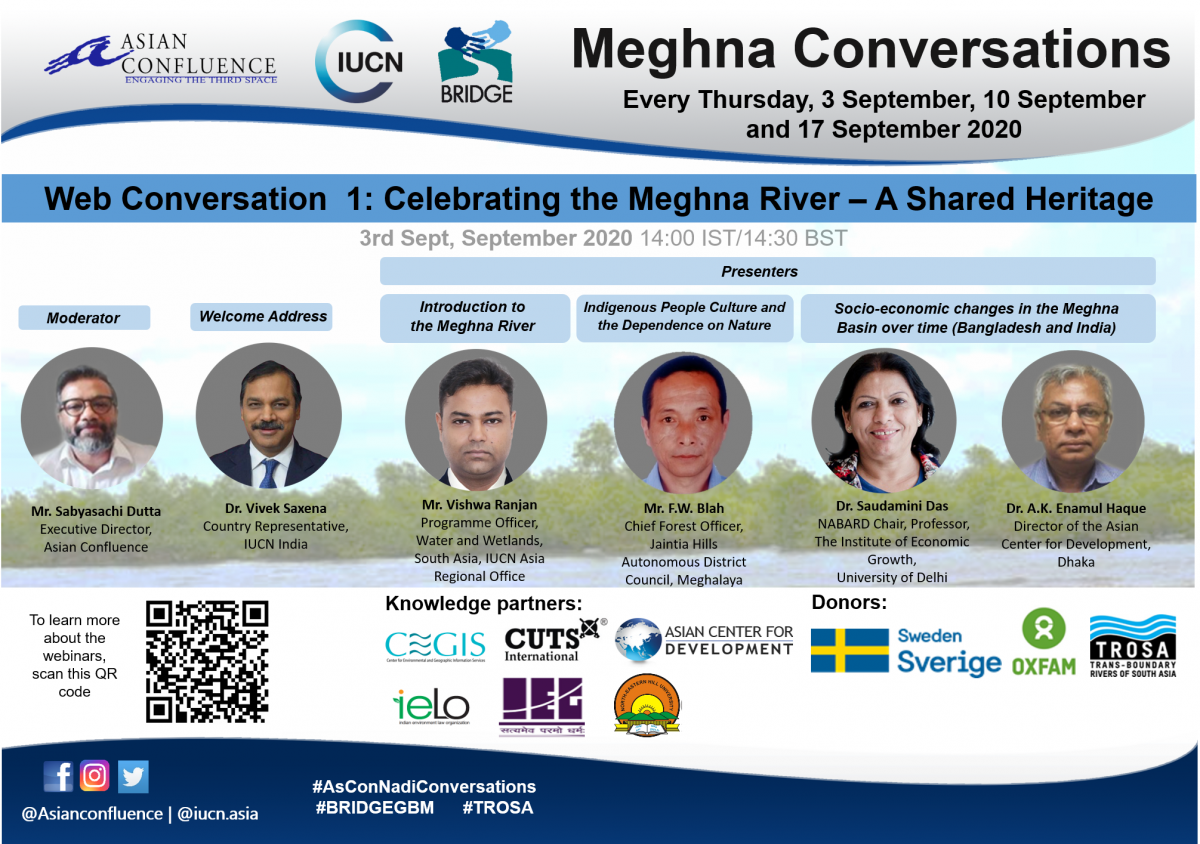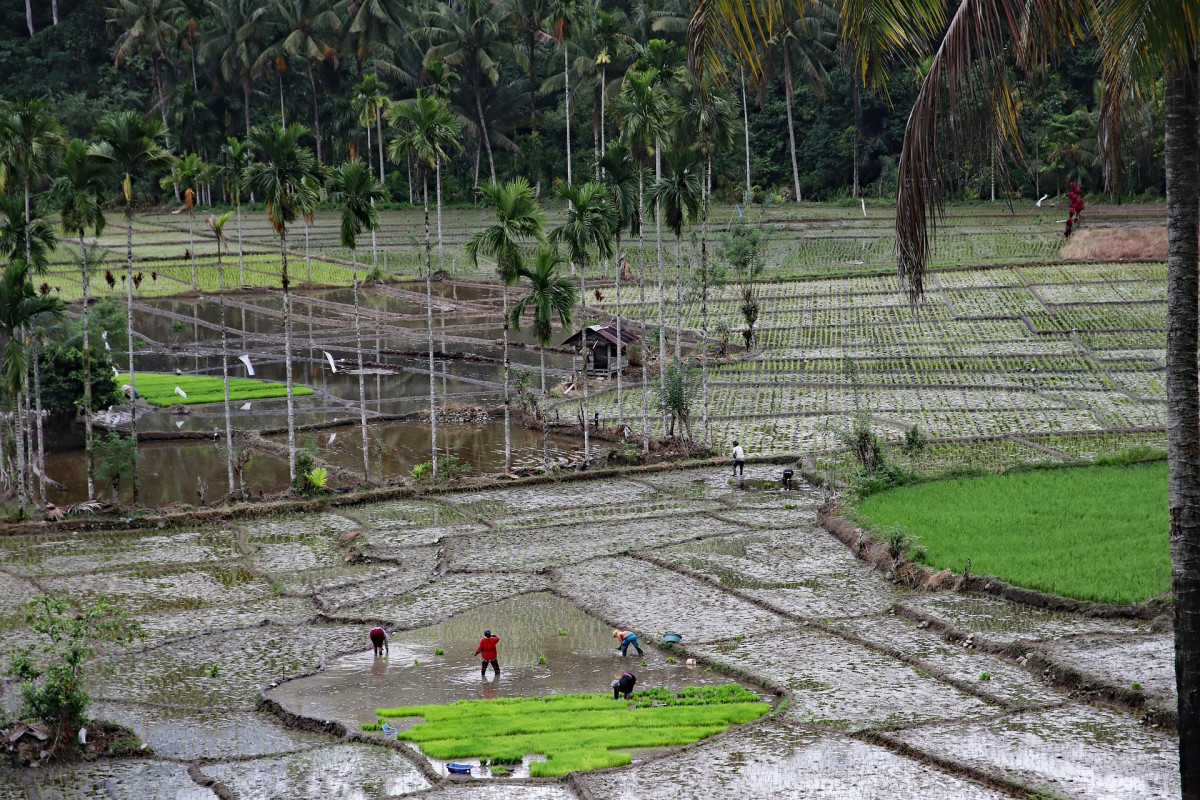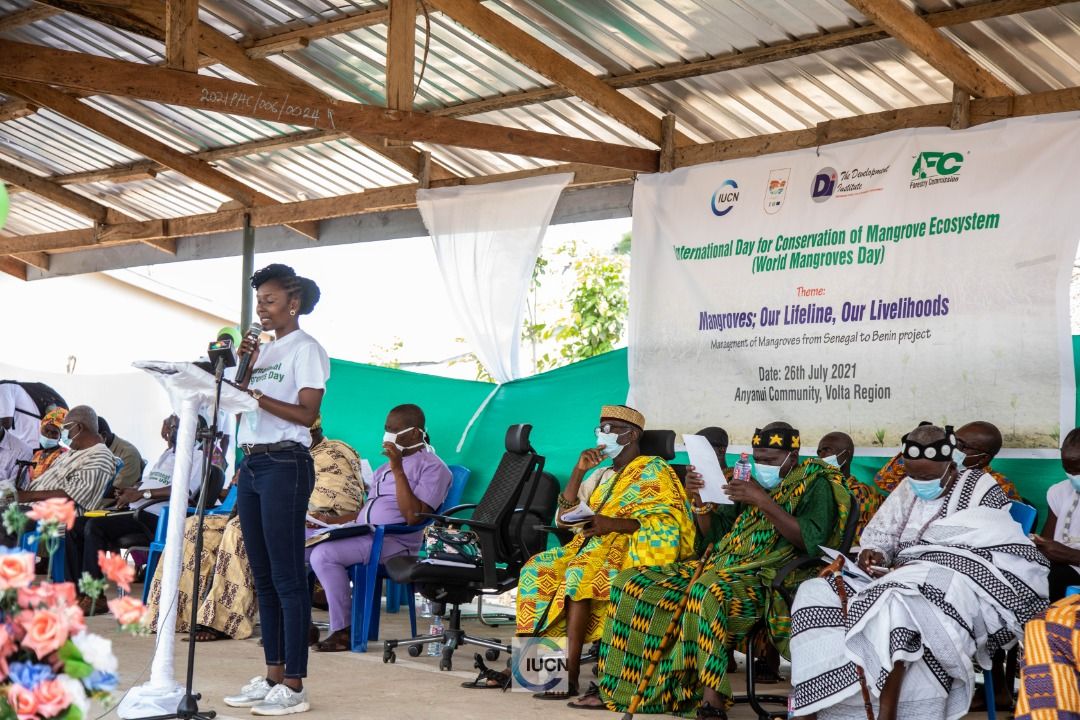Meghna Conversations webinar demonstrates the cultural and economic diversity of the Meghna River Basin
On 3 September 2020 — IUCN and Asian Confluence jointly hosted a webinar on “Celebrating the Meghna River- A Shared Heritage,” the first of three webinars in the Meghna Conversations series. The series aims to raise awareness of the cultural, social, and ecological values of the Meghna River and the need for cooperation among stakeholders to protect this diversity. More than 40 participants from Bangladesh and India joined the conversation online.

Photo: ©IUCN
The first webinar introduced the Meghna Basin, with presenters discussing the importance of the basin from the socio-economic and ecosystems perspective. The Meghna Basin supports one of the largest Hilsa fisheries in the world, providing a source of protein for millions of people living in Bangladesh and India. Mr. Vishwa Ranjan, Programme Officer, Water and Wetlands, IUCN Asia, explained the supporting ecosystem services, “Most of the forest cover of the basin is located in India, and these sequester carbon and are important for the climate regulation across the basin. The basin also includes more than 1,000 wetlands located in the Haor region of Bangladesh and the Barak Valley of India, these buffers against flooding and also provide habitat for thousands of migratory waterfowl annually.”
The basin has high cultural significance, with a number of indigenous communities including Jaintia and Khasi living in the basin, “The ancient Jaintia kingdom used to span both sides of the border and was replete with monuments, cultures, folklore and art forms. The ancient Jadukata River festival is one example of the cultural value of the rivers for the people and celebrated till today” shared Sabyasachi Dutta, Executive Director, Asian Confluence.
Despite these important values, the basin faces a range of threats. A recent study, supported by IUCN, has shown that there are large socio-economic disparities throughout the region. Dr. Saudamini Das, Professor at the Institute of Economic Growth, University of Delhi noted, “Indigenous communities living in the forest dominated landscapes of Meghna Basin are poor and depend on the forest for their socio-economic well-being. Development of innovative Payment of Ecosystem Services (PES) mechanisms can help in simultaneously addressing both the economic security of indigenous people and the protection of watersheds for the long-term water security across the basin.”
Mr. F.W. Blah, Chief Forest Officer of the Jaintia Hills Autonomous District Council, Meghalaya discussed the impact that mining and shifting cultivation on the forests of the Jaintia Hills, the source of many transboundary tributaries of the Meghna River, including Myntdu and Umngot. Destructive mining has stopped, however, deforestation, forest fragmentation, and soil degradation continues to threaten the ecosystem. Mr. Blah explained that the Jaintia Hills Autonomous Council is the elected governing body of the Jaintia people. “The Council plays an essential role in the functioning of the community, promoting the unique culture of the region, organizing traditional celebrations, and protecting the land tenure system,” said Mr. Blah. There is a need to support the Council to ensure the sustainability of activities that are permitted within the district, minimizing environmental impacts in the basin.
Panelists and participants discussed benefit-sharing as an opportunity in the transboundary context. Dr. A.K. Enamul Haque, Director for the Asian Center for Development, Dhaka highlighted the potential for bilateral benefit sharing in the Meghna: “IN last 40 years transboundary water discussions between Bangladesh and India has focused on sharing of the volumes of water of the Ganges River. Now that Bangladesh has revived the water transportation treaty, there has been a shift from water sharing to the use of the river for common benefits on both sides, such as developing transportation networks between the two countries.”
The webinar highlighted the need to strengthen collaboration within the Basin to maintain the Meghna’s status as one of the last remaining long free-flowing rivers in Asia.
According to a recent article published in the journal Nature, Mapping the Worlds Free-Flowing River, the Meghna River has been identified as one of the last remaining long free-flowing rivers in Asia. In contrast, the Brahmaputra River is listed as a non-free-flowing river, with good connectivity status; similarly, the Ganges is also categorized as a non-free-flowing river, but with very limited connectivity.
The webinar also demonstrated the cultural importance of the river to indigenous communities and their dependence on the ecosystem services provided by the river. Promoting bilateral agreements on the use of the river and its resources will benefit millions of people residing in both upstream and downstream communities.
The webinar series is part of the BRIDGE GBM project, facilitated by IUCN, and funded by the Swedish International Development Cooperation Agency (Sida) through the Oxfam Transboundary Rivers of South Asia (TROSA) programme, aims to build the water governance capacity of a network of CSOs in the GBM River Basin. Its focus is to strengthen CSO engagement in transboundary water management issues.
For more information on the Meghna Conversation Series, visit the IUCN Website
The webinar video is available on IUCN Asia Facebook Page



